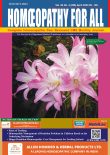Innovative and Optimum Use of Artificial Intelligence in Homeopathic Academic Research to Maximize the Potential
Keywords:
advancements, remarkable, automationAbstract
Imagine a world where machines converse with humans, diagnose diseases accurately, and navigate city streets autonomously. This is the reality shaped by Artificial Intelligence (AI), a transformative force redefining industries, economies, and daily life, including education. We have all witnessed a revolution in content writing and development following the launch of ChatGPT, one of the first widely used AI tools made accessible to the public. For homeopathic students and researchers, understanding AI's role can significantly enhance research outcome. By leveraging AI, they can automate tasks like data collection and analysis, focusing more on critical thinking and interpretation. AI assists in comprehensive literature reviews, identifying key themes and gaps swiftly. Additionally, AI-powered writing aids enhance clarity and coherence, ensuring dissertations meet high academic standards. AI not only streamlines the research process but also enriches the quality of scholarly work, fostering innovation and deeper insights. AI's influence extends beyond automation, transforming how knowledge is accessed, processed, and utilized. Machine learning algorithms analyze vast datasets with precision, identifying patterns and making predictions invaluable in fields requiring large-scale data analysis.
Downloads
References
Liu, B. (2012). Sentiment Analysis and Opinion Mining. Synthesis Lectures on Human Language Technologies, 5(1), 1-167. doi:10.2200/ S00416ED1V01Y201204HLT016
Kelleher, J. D., Mac Namee, B., & D'arcy, A. (2020). Fundamentals of machine learning for predictive data analytics: algorithms, worked examples, and case studies. MIT press.
VanLehn, K. (2011). The relative effectiveness of human tutoring, intelligent tutoring systems, and other tutoring systems. Educational psychologist, 46(4), 197-221.
Müller, R., & Turner, R. (2007). The influence of project managers on project success criteria and project success by type of project. European management journal, 25(4), 298-309.
Niazi, M. A., & Hussain, A. (2013). Agent-based computing from multi-agent systems to agent based models: A visual survey. Scientometrics, 89(2), 479-499. doi:10.1007/s11192-011-0468-9




